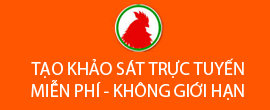Communication and Culture
Unit 5: Cultural identity
Communication and Culture
Communication
Migration and cultural identity
1. Listen to a talk by Mr Ben Wilson, a sociologist and psychologist, about preserving migrants' cultural identity. Answer the questions.
Nghe một cuộc nói chuyện của ông Ben Wilson, một nhà xã hội học và tâm lý học, về giữ gìn bản sắc văn hóa của người di cư. Trả lời các câu hỏi.
Click tại đây để nghe:
- What are migrants encouraged to do in a multicultural society?
- What do migrants want to do when they settle down in a new culture?
- Summarise the two ways for migrants to pass down their culture to the next generation.
Hướng dẫn:
- They are encouraged to maintain their cultural identity.
- They want to assimilate into the new culture, but they also want to maintain their own culture.
- The first way: encouraging all family members to speak the mother tongue at home; travelling to the home country regularly.
The second way: attending festivals celebrating the migrants'culture.
Audio script
The topic of my talk today is the problems many migrants have to face when living in a place which is not their homeland. Migrants can be immigrants who settle down in another country. But migrants can also be those people moving from one place to another within the same country, like... moving from the countryside to the city.
In a multicultural society like ours, migrants are encouraged to maintain their own cultural identity. When people migrate, they do not leave their beliefs, customs or cultural practices behind. They want to assimilate into the new culture, but they also want to maintain their own. However, their children and grandchildren, I mean the next generations, find it difficult.
There are mainly two ways for migrants to pass down their culture to the next generation. First, they should encourage all family members to speak the mother tongue at home. This will help the young ones to communicate with people in the home
country when they have a chance to visit their homeland, in s also means that it's necessary to travel to the home country regularly. There is no better way to learn about a culture than to experience it first-hand. Second, they should attend festivals celebrating their culture, such as the Lunar New Year for some Asian communities. On these occasions, everybody can enjoy traditional food, wear traditional clothes, sing folk songs, and exchange best wishes in the heritage language. People will have a chance to get together, and maintain and further develop their sense of cultural identity.
2. Discuss the question with a partner.
Thảo luận về các câu hỏi với một người bạn.
What should people do to preserve their cultural identity when they move to a new place? - Mọi người nên làm gì để giữ gìn bản sắc văn hóa của họ khi họ di chuyển đến một nơi ở mới?
Gợi ý trả lời:
When people move to a new place, they can preserve their cultural identity by
- organising and participating in traditional festivals or practices in their community,
- cooking traditional food for the family,
- teaching children to speak their native language at home.
Culture
Festivals
1. Read the text about celebrations of some ethnic groups in Viet Nam. Write the names of the festivals under the pictures.
(Đọc văn bản về lễ kỷ niệm của một số dân tộc ở Việt Nam. Viết tên của các lễ hội dưới hình ảnh.)
Festivals are celebrated to highlight the cultural heritage of nations. At national level, festivals help to strengthen the spirit of solidarity and unity of the whole nation. Regional festivals or festivals of an ethnic group, on the other hand, help to maintain the cultural identity of a community. Taking part in different activities of the festival, group members get together, have fun, and promote their cultural image. Examples can be found in well-known festivals of some ethnic groups in Viet Nam.
In March, the Elephant Racing Festival is held at Don Village, in Dak Lak Province, to promote the martial spirit of the M'Nong and Ede people, who are famous for their bravery in wild elephant hunting. Every year, more and more participants in colourful costumes flock to the area to watch the race and take part in other fun activities such as eating traditional food, drinking rice wine, dancing, and watching elephants play soccer.
Forest Worshipping is an important festival of the Nung and Dao people in Ha Giang and Lao Cai Provinces, which takes place in thefirst lunar month. People worship the god of trees and villagers who sacrificed their lives to protect the village.They also pray for good health, fruitful trees and favourable climate. The ceremony is held under an old tree in the forest, with a lot of agricultural products used as offerings. After the ceremony, local people sign a statement to protect forests and plant more trees around their houses. Finally, they take part in folk games with strong ethnic identity, such as blind man's buff, swinging, shuttlecock throwing, and tug of war.
Đáp án:
a. Elephant Racing Festival
b. Forest Worshipping Festival
2. Read the text again and complete the table.
(Đọc văn bản một lần nữa và hoàn thành bảng.)
Đáp án:
|
|
Elephant Racing Festival |
Forest Worshipping Festival |
|
Location |
|
|
|
Time |
|
|
|
Ethnic groups |
|
|
|
Purpose |
|
|
|
Activities |
|
|
3. Discuss the question with a partner.
Have you ever attended any ethnic cultural festivals in Viet Nam?
a. If yes, tell your partner where, when, how and why the festival was celebrated.
b. If no, do you want to attend any? Why or why not?
Hướng dẫn:
Thảo luận các câu hỏi với một người bạn.
Bạn đã bao giờ tham dự bất kỳ lễ hội văn hóa dân tộc ở Việt Nam?
a. Nếu có, hãy nói cho người bạn của bạn ở đâu, khi nào, như thế nào và tại sao các lễ hội được tổ chức.
b. Nếu không có, bạn có muốn tham gia không? Tại sao hoặc tại sao không?
Bài tập
- Communication 1 Listen to a talk by Mr Ben Wilson, a sociologist and psychologist, about preserving migrants' cultural identity. Answer the questions.
- Communication 2 Discuss the question with a partner.
- Culture 1 Read the text about celebrations of some ethnic groups in Viet Nam. Write the names of the festivals under the pictures.
- Culture 2 Read the text again and complete the table.
- Culture 3 Discuss the question with a partner.




